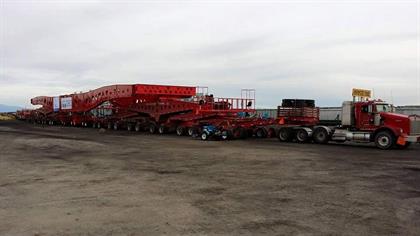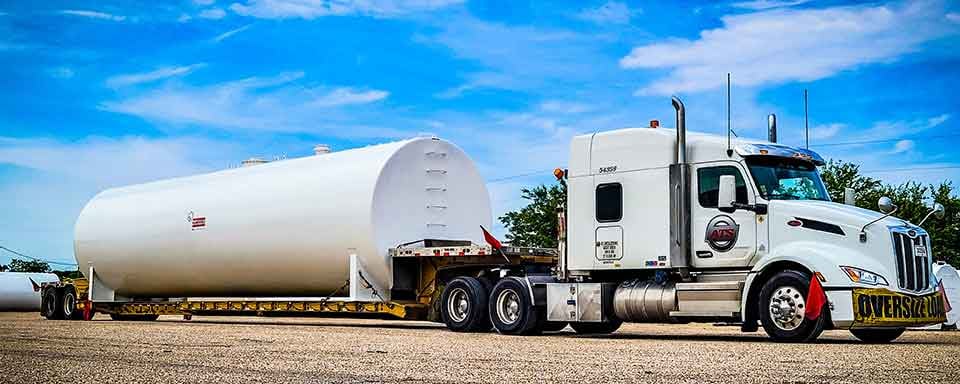What Are the Regulations for Oversized Load Trailers?
Transporting oversized loads comes with unique challenges and responsibilities, requiring adherence to specific regulations to ensure safety on the road. Oversized load trailers, which carry loads exceeding standard size limits, must comply with various rules and guidelines. In this comprehensive guide, we will explore the key regulations governing oversized load trailers, providing essential insights for both transport professionals and those overseeing the movement of large cargoes.
1. Definition of Oversized Load:
Size and Weight Limits: An oversized load typically exceeds the standard size and weight limits set by transportation authorities. This can include loads with dimensions that surpass the legal length, width, height, or weight for regular transportation.
2. Permit Requirements:
State and Federal Permits: Transporting oversized loads requires obtaining permits from relevant authorities. Permits may be issued at the state or federal level, depending on the route and the jurisdictions involved.
Specific Load Details: Permit applications must provide detailed information about the oversized load, including dimensions, weight, and the intended route. Some states may also require a detailed route survey.
3. Escort and Flagging Requirements:
Escort Vehicles: Many jurisdictions require oversized loads to be accompanied by escort vehicles. Escorts serve to alert and guide other motorists, ensuring the safe passage of the oversized load.
Flagging: Red or orange flags are often mandated to mark the extremities of oversized loads. This enhances visibility and alerts others on the road to exercise caution.
4. Night and Weekend Travel Restrictions:
Time Restrictions: Some jurisdictions impose restrictions on the times when oversized loads can travel. Nighttime and weekend travel may be limited to reduce the impact on traffic and enhance safety.
5. Route Planning and Restrictions:
Specialized Routes: Oversized load trailers may be required to follow specific routes designed to accommodate their dimensions. These routes often avoid low bridges, tunnels, and areas with tight turns.
Bridge and Weight Restrictions: Authorities impose restrictions on crossing certain bridges or traveling on roads with weight limitations to prevent damage to infrastructure.
6. Pilot Cars and Amber Lights:
Pilot Cars: In addition to escort vehicles, some states mandate the use of pilot cars, which may travel in front of or behind the oversized load to provide additional warning to motorists.
Amber Lights: Oversized load trailers are often equipped with amber lights to enhance visibility. These lights may flash or remain steady, depending on state regulations.
7. Communication and Safety Measures:
Two-Way Radios: Communication between the oversized load driver, escort vehicles, and authorities is crucial. Two-way radios or other communication devices are often required.
Safety Measures: Oversized load trailers must implement additional safety measures, such as the use of wide-load banners, to alert other drivers of the potential hazards associated with the oversized load.
8. Special Requirements for Heavy Hauling:
Engineering Surveys: In cases of extremely heavy loads, engineering surveys may be required to assess the impact on infrastructure and determine the safest route.
Police Escorts: Particularly large or heavy loads may necessitate police escorts to ensure the safety of the journey.
9. Insurance and Liability:
Liability Coverage: Transporting oversized loads typically requires sufficient liability coverage. Insurance requirements vary by jurisdiction, and compliance is essential to obtain permits.
10. Consequences of Non-Compliance:
Fines and Penalties: Non-compliance with oversized load regulations can result in fines, penalties, and delays. Authorities may also revoke permits for violations.
Navigating the regulations for oversized load trailers demands meticulous planning, adherence to permit requirements, and a commitment to safety. Transport professionals and those overseeing the movement of oversized loads must stay informed about the specific regulations in each jurisdiction to ensure a smooth and lawful transportation process.
For expert assistance in transporting oversized loads while complying with regulations, consider reaching out to professionals like Safeeds Transport. Their experience in managing oversized loads ensures a reliable and compliant transportation solution.
Get a quote from Safeeds Transport Inc
By understanding and following the regulations outlined for oversized load trailers, transport professionals can contribute to road safety, protect infrastructure, and ensure the secure and efficient transportation of large cargoes.




Comments
Post a Comment